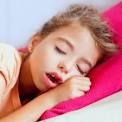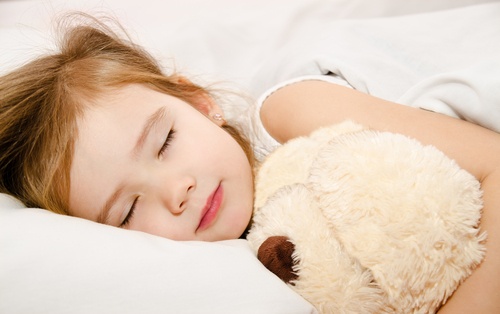
Many parents, teachers, and pediatric healthcare providers face the issue that though the cause and treatment of sleep disorders and ADHD are different, the symptoms and behaviors often look much the same.
The Psychological Element
Depression, anxiety, trauma responses, and nightmares are by no means the preserve of adults only. Those under the age of 18 can experience them too! Youngsters often struggle more to articulate what they’re feeling, leading to acting out and difficulty sleeping, which can certainly present with ADHD-like symptoms.
Physical Causes of Impaired Sleep
There are also two key physical reasons why children’s sleep might be impeded; Restless Leg Syndrome and Sleep Apnea. Restless Leg Syndrome involves unpleasant sensations in the legs and can cause the sufferer to wake up several times in the night. After such broken sleep, it’s almost impossible to feel rested.
The reasons for Restless Leg Syndrome vary between adults and children and include iron deficiency or un-diagnosed diabetes. More commonly, the physical reason for disturbed sleep in youngsters is sleep apnea – where breathing is paused for so long that sufferers’ bodies are forced to wake them up and prevent asphyxiation.
Interestingly, when tiredness can be attributed to sleep apnea rather than other sleeping problems, it seems to cause more attention and behavioral issues. A longitudinal study published in 2013 highlighted this point. It found that learning disabilities, communication problems, aggression, and hyperactivity were exacerbated by obstructive sleep apnea.
More evidence was provided by a large-scale review of over 11,000 children conducted in 2012 and published in the journal Pediatrics. Researchers reported that subjects with sleep-disordered breathing found it harder to interact, follow the rules, or control their behavioral impulses. They were also far more prone to hyperactivity than their peers.
In the same study, it was noted that young children with sleep-disordered breathing were more likely to develop typical ADHD behavioral issues by the age of 7. Of those studied, between 40% and 100% displayed ADHD-type symptoms when compared to same-age subjects who didn’t experience any kind of respiratory event while asleep.
Symptoms in Common
The net result of ADHD or another sleep disorder is a child who is unfocused, has a poor memory, struggles to concentrate, fails in organizational tasks and has difficulty with impulse control.
Further complicating matters is the fact that ADHD medication can disturb natural sleep and waking cycles, making whoever is taking them seem alert or tired at odd times.
Additionally, youngsters with ADHD simply have a lot more energy than those who don’t, making it harder for them to fall asleep and possibly creating the false impression of a sleep disorder.
In short, it’s not hard to understand why parents and teachers get confused and make misdiagnoses. The (somewhat disturbing) fact is, even pediatricians do it.
Research shows that many of these doctors don’t receive specialized training when it comes to childhood sleep disorders and that those with less training don’t consider it a big concern. These issues combine to make untrained pediatricians likelier to misdiagnose or simply miss a sleep disorder.
Even age can have a significant effect here. A study of children starting school just after they turned five compared to those who were nearly six highlighted the issue. Findings revealed that the younger age group were more likely to be diagnosed with ADHD.
So, with so much uncertainty, what can you do?
Take a Conservative Approach

Instead, find a pediatrician that you trust, discuss the situation with them, and with your child’s teacher, occupational therapist (if they see one), and any other professionals or adults who spend a significant amount of time with your child.
If a more holistic approach is required, you can try natural solutions such as Cannabidiol (CBD) oil to relieve stress or other stress-release strategies. Make a note of any effects that these have so that you can report back to your team of healthcare professionals. In the same way, think carefully about any stressors or changes in your offspring’s home or school environment that could be provoking anxiety and causing sleep issues.
Other indicators that you should observe are whether sugary foods cause the hyperactivity to increase and whether exercise causes it to decrease. Both of these factors would indicate that the problem is not ADHD. You should also assess whether your child has a calming nighttime routine and a bedroom that is a sleep-conducive environment.
While you’re doing all this hands-on research, make sure you’re talking to your child to identify any other causes of stress, anxiety, or depression. You may remember the past trauma that is preventing a good night’s sleep or might have no idea of what happened. In that case, your youngster might tell you if you simply ask him or her or may need to talk to a therapist about it.
At the same time, physical issues should be ruled out. Pediatricians should be able to identify whether your child has Restless Legs Syndrome or Sleep Apnea – and there are medications and treatments for these conditions.
ADHD is a serious matter, and the children who require treatment should get the remediation and medication they need. Around 6.1 million children aged 2 to 17 in the United States have this disorder, so it’s certainly not uncommon. However, a misdiagnosis could lead to costly, ineffective treatment. Your best option is to proceed with caution.
Disrupted sleep in children
Consequences of undiagnosed sleep apnea affect more than a restful night. Their social behavior could produce more fights with friends or behavior issues due to inattentiveness and moodiness. Sleep apnea can result in slower growth and development due to not producing enough growth hormone. Obesity can also contribute to the list of health issues causing your child to have higher resistance to insulin as well as feeling fatigued during the day.
Sleep disorders in children can lead to lower school grades and cranky children to even behavioral problems in their social lives.
The first step is to alert your child’s pediatrician if you believe that your child is suffering from a sleep disorder or was misdiagnosed with ADHD. After a proper physical exam, they will determine if an ENT visit may be needed for enlarged adenoids and/or tonsils or a sleep study.
An A.W.A.K.E. support group through the American Sleep Apnea Association can help with any questions to others who have experienced misdiagnosis and the road ahead while dealing with pediatric OSA.
If your child still is diagnosed having ADHD, talk to your doctor about options. A non-stimulant may be a better option. These medications take longer to start working than stimulants, but can also improve focus, attention, and impulsivity in a person with ADHD.
Next steps are available with our doctors to diagnose your child correctly through a free pediatrics phone consultation at the Alaska Sleep Clinic.












